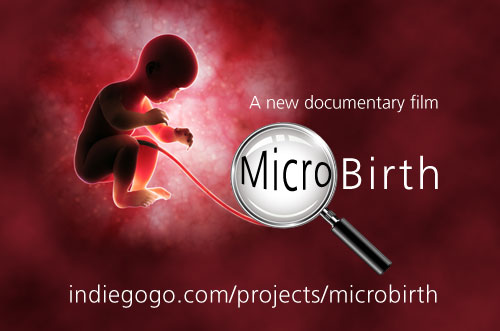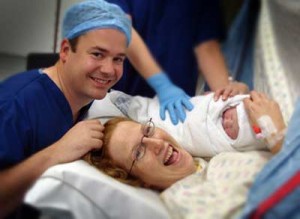EXCLUSIVE INTERVIEW-Toni and Alex changing the world
/ Toni Harman and her partner Alex became known to me when I saw a short clip of one of their outstanding videos, on a social media channel. This was several years ago, and since then I have stayed in close contact with them, assisting and supporting them whenever I can. To say that they took the birthing world by storm is an understatement. This unique partnership has given birth activists the voice they needed, and their expertise in documentary film making means we now how a powerful medium to share knowledge to more people.
Toni Harman and her partner Alex became known to me when I saw a short clip of one of their outstanding videos, on a social media channel. This was several years ago, and since then I have stayed in close contact with them, assisting and supporting them whenever I can. To say that they took the birthing world by storm is an understatement. This unique partnership has given birth activists the voice they needed, and their expertise in documentary film making means we now how a powerful medium to share knowledge to more people.
As Toni and Alex have just launched their exciting new campaign MicroBirth, I asked Toni if I could interview her for my blog (and she agreed!)
Hi Toni, thanks for agreeing to answering my questions, hope you have fun! Can you tell us a bit about yourselves in a nutshell?
Toni: Thanks Sheena for inviting us to do this!
Alex and I met at London Film School 20 years ago, (back then it was called the London International Film School). After we graduated, we formed a company called Alto Films and started making films together. We made documentaries, short films and even a psychological thriller feature film. Then six years ago, we had a baby. And that changed everything.
We started making films about birth. We made a documentary about doulas called DOULA! then we started looking into the bigger picture of childbirth.
Three years later, we've travelled 35,000 miles and interviewed over 150 world leading experts - amongst them, academics, lawyers, scientists, midwives, obstetricians, psychologists and anthropologists. We've released short videos on our One World Birth website and started building a community of people on Facebook.
In 2012 we released FREEDOM FOR BIRTH, a 60 minute documentary that exposed human rights abuses around the world, particularly highlighting the story of the imprisoned Hungarian midwife Agnes Gereb.
In December 2012, we started looking at possible subjects for our next documentary. We started researching the science around birth and the more we read, the more “levels” we seemed to uncover. It was fascinating but also, deeply troubling. So in the summer of 2013, we started filming, first in the UK and then we flew out to the United States and Canada. What we learned shocked us to the core - we realised this film had the potential to change everything. And so MICROBIRTH was born.
ONE WORLD BIRTH is a now well known name globally, and FREEDOM FOR BIRTH is a huge success. What impact do you think you and the campaign has had so far ?
Toni: That's very kind of you to say. I think ONE WORLD BIRTH is perhaps well-known in the birth world, but outside the birth world, I don't think many people have heard of it.
Same goes for FREEDOM FOR BIRTH - I am really proud of its “success” in terms of the number of people in the birth world who have seen it, or at least have heard about the film. With the premiere launch, we had over 100,000 people see the film at over 1,000 screenings in 50 countries in 17 languages - all on one day.
And I'm very proud that the film has played a part in starting to change maternity policies worldwide so that the rights of birthing women are respected. But realistically, outside the birth world, I'm not sure how many of the “mainstream population” have heard about it or know about the issues.
Unfortunately, women's rights in childbirth are still being abused every day all around the world - many expectant women are not being given full informed consent, home birth attended by midwives is not available as a supported choice in many parts of the world and indeed, in the past year, many more midwives have been criminally prosecuted for supporting women giving birth at home. I remain optimistic that change will happen so that all women's choices are fully respected everywhere around the world and I am excited by the potential of the formation of Human Rights in Childbirth and Birthrights as organisations that will help further the cause.
I am so excited about your new project MICROBIRTH -do tell us about it please, and a something about the inspiration behind it?
Toni: MICROBIRTH is our new feature-length documentary asking if medical interventions in childbirth could be damaging the long-term health of our children and have repercussions for the whole of our species.
We wanted to make a film that looks at birth in a whole new way, through the lens of a microscope. This has never been done before and we believe the science the film is revealing is the missing piece of the jigsaw. This could change birth around the world, forever.
The film explores the latest scientific developments in the fields of microbiology, physiology and epigenetics.
Some scientists are starting to question if there is a link between medical interventions in childbirth (specifically use of synthetic oxytocin, antibiotics, C-section and formula feeding) with an increased risk of our children developing non-communicable disease later in life.
Non-communicable diseases include heart disease, asthma and other respiratory diseases, diabetes, autoimmune diseases, some cancers and mental health disorders. They are already at epidemic proportions around the world and are the world's no. 1 killer. But these diseases are on the rise. It is predicted that the cost of non-communicable disease could bankrupt world healthcare systems by the year 2030, an event that could have catastrophic consequences for mankind....
The campaign's 9 minute pitch video features some of the scientists we have filmed and explains a bit of the science of the microbiome. The film also tells more about the event that we've been describing as “global warming for the species”:
What are your plans for this campaign?
Toni: We need to raise $100,000 to complete filming and to get the film seen around the world. So we've launched an Indiegogo campaign to help us raise the funds we need. If we can raise enough money, then we want to film at the Human Microbiome Project in New York, the United Nations, the World Economic Forum and the World Health Organization as well as filming the top people at leading obstetric organisations to hear their view about the potential long-term consequences of medical interventions in childbirth.
The most exciting part of this project is how we want to release the film. Just like we did with FREEDOM FOR BIRTH, we want to have thousands of premiere screenings of MICROBIRTH held all around the world on one single day. We want to create a global simultaneous event with screenings in every community, in every country so that we can grab the attention of the global media and we can grab the attention of decision-makers including our Presidents and Prime Ministers. It sounds ambitious, but we truly believe that if we can do this, especially if we have the the support of strong-minded, strong-willed individuals committed to making change happen.
In terms of what we want this film to achieve, we want to raise awareness that there could be long-term consequences arising from the medicalised way we are giving birth today, both for our children and for our whole species. We want to get everyone talking about this and taking this issue extremely seriously for the future of humanity could be at stake. And we would love to see much more scientific research looking at the potential long-term consequences of medical interventions in childbirth, before it is too late.
What’s the most important thing you have learnt since beginning this amazing journey of campaigning for better childbirth?
Toni: We've been very fortunate in being able to film interviews with over 150 experts across so many different fields.
But I think there's two pivotal moments in our journey so far. The first birth I filmed completely changed my world view. It was four years ago and it was a home water birth in the UK with the mother and father supported by a doula and two wonderful midwives (it was the first birth featured in our DOULA! Film). It was a completely physiological labour, birth and 3rd stage with no pharmacological pain relief, not even gas and air. The labour and birth was the most beautiful, amazing, calm, wonderful, inspiring thing I have ever seen. It was perfect. I saw with my own eyes what birth could be like. I know some women might not want a home birth. And some women might want or need pain relief and other medical interventions. But the beauty of that moment, well, it was simply life-changing.
The second pivotal moment was last summer when we were filming for MICROBIRTH. We filmed a Professor of Immunotoxiciology at Cornell University. He told us exactly why and how interventions in childbirth could be damaging the long-term health of our children with implications for the whole of mankind. We had huge goose-bumps. I still have them now as I remember that moment.
If I had a magic wand, and could grant one wish to ensure all women had a positive birth experience, what would you ask for?
Toni: After we made FREEDOM FOR BIRTH my hope was that every woman on the planet has the best possible birth wherever, however and with whom she chooses to give birth. I hope that all women are fully informed about their birth choices and that these choices are fully respected by every healthcare provider.
But now with MICROBIRTH, I have one more wish. That every expectant mother and healthcare provider is fully informed about the importance of seeding the baby's microbiome with the mother's own bacteria. That even if a mother needs to have a C-section, that she is still fully supported with immediate skin-to-skin contact and with breastfeeding. It sounds a technical, scientific wish, but if this was possible on a planet-wide basis, I believe that this could make a significant difference to the future health of mankind.
And lastly, what drives you both, as a couple, to stay motivated and passionate about your work in this area?
Toni: When we were at film school, we were told to never make a film unless you felt that it had the power to change the world. So every film we make, we honestly do set out to change the world. That's what drives us forward. That's what motivates us. The thought that we can use our skills as filmmakers to make a significant difference to the world.
With MICROBIRTH, we think this could be a game-changer. This could be THE ONE. We feel that this is the most important film we will ever make. But to get it finished and seen around the world for maximum impact, we need everyone's support - not just financially in terms of contributions to our fund-raising campaign, but in sharing links and in spreading awareness, both now and when the finished film is released this September.
Thanks Sheena for asking me to do this. It was fun!



